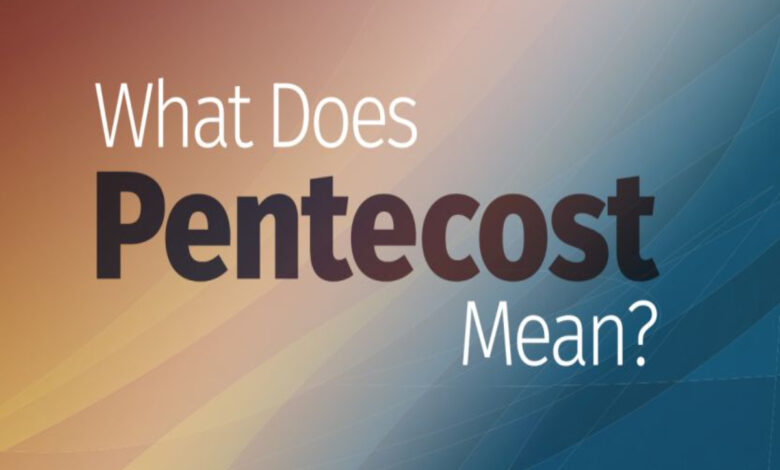What is the day of Pentecost?
What is the day of Pentecost, why is it important to Christians

What is the day of Pentecost?
Pentecost is mentioned in the Old and New Testaments. Pentecost is the Greek term for the Feast of Weeks, which was celebrated in the Old Testament (Leviticus 23:15; Deut. 16:9). The Greek phrase means “fifty” and relates to the fifty days since the Passover wave offering. The Feast of Weeks commemorated the completion of the grain harvest.
Acts 2:1-3 is the sole scriptural reference to the actual events of Pentecost. Pentecost is similar to the Last Supper in that the disciples gather in a house for what turns out to be a significant occasion.
The disciples witness the conclusion of the Messiah’s earthly career at the Last Supper when He requests them to honour Him after His demise until He returns.
The apostles witness the creation of the New Testament faith at Pentecost when the Holy Spirit comes to indwell all believers. Thus, the Pentecost scene of the disciples in a room connects the beginning of the Holy Spirit’s ministry in the church with the completion of Christ’s earthly ministry in the upper room before the crucifixion.
What is Pentecost Sunday?
Pentecost Sunday commemorates and celebrates the early church’s reception of the Holy Spirit. John the Baptist predicted that on the first Pentecost, Jesus would baptize with the Holy Spirit and fire (Matthew 3:11). In John 14:26, Jesus validated this prophecy by promising the disciples the Holy Spirit.
He appeared to these men after his death on the cross and resurrection, providing convincing evidence that he was alive. Jesus instructed His followers to remain in Jerusalem until the Father bestowed the Holy Spirit on them, from whom they would gain authority to be His witnesses to the ends of the earth (Acts 1:3-8).
Today, Pentecost Sunday is observed in many Christian congregations to commemorate the giving of the Holy Spirit, recognizing that believers contain God’s very life, breath, and energy.
Pentecost Sunday serves to remind us that we all have the same liberating Spirit that was poured down on the first-century church. It serves as a reminder that we are co-heirs with Christ, to suffer alongside Him in order to be glorified alongside Him, and that the manifestation of the Spirit is provided for the common good.
What is the outpouring of the Holy Spirit?
The Holy Spirit’s outpouring—Spirit God’s flowing out to fill and indwell people—was foretold in the Old Testament and accomplished at Pentecost (Acts 2). This occurrence was foreseen in the Bible. “I will pour water on the thirsty land, and streams on the dry ground;
I will pour out my Spirit on your offspring, and my blessing on your descendants,” God stated to Israel. The Holy Spirit is shown as the “water of life,” saving and blessing a dying person.
Peter fulfilled another prophecy on the day of Pentecost: “I will pour out my Spirit on all people. Your sons and daughters will foretell the future, your old men will have dreams, and your young men will experience visions. In those days, I will pour out my Spirit on my slaves, both men and women,… and everyone else who calls on the Lord’s name will be saved “(Joel 2:28–29, 32).
Conclusion
The manifestation of the Holy Spirit marked the start of a new era, the Christian age. The Holy Spirit was a rare blessing in the Old Testament, bestowed to just a few persons for brief periods of time.
The Holy Spirit came upon Saul when he was appointed king of Israel. Still, when God withdrew His blessing from Saul, the Holy Spirit left him (1 Samuel 16:14). The Holy Spirit appeared in the lives of Gideon (Judges 6:34) and Samson (Judges 13:25) at specified times or seasons to empower them to execute His will and serve Israel. The Holy Spirit was given out to all believers in Jesus at Pentecost.
Get more prayer points, daily inspirational posts, and a pastor’s biography here at Dailygam.com












